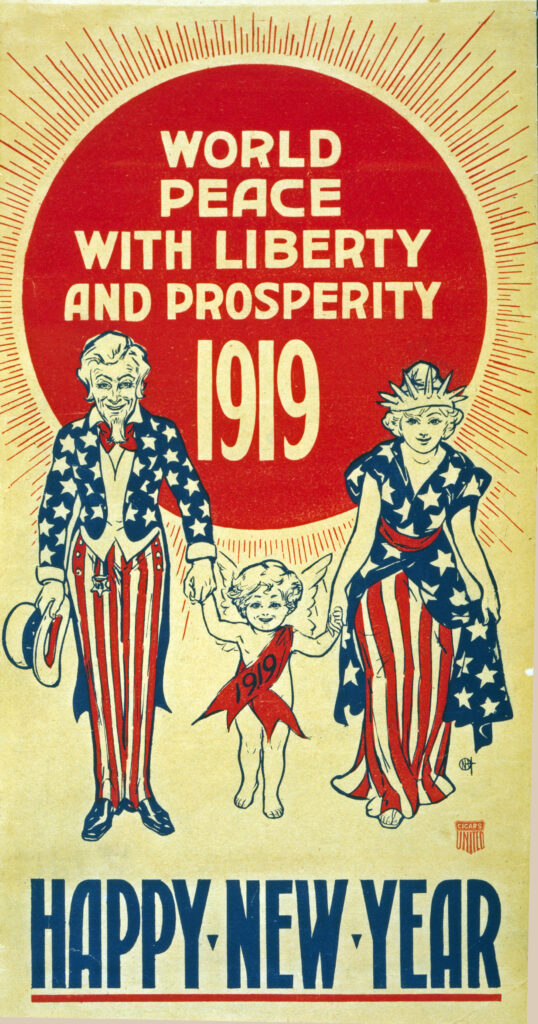Thursday, December 12

Jesus said, “As for what you see here, the time will come when not one stone will be left on another; every one of them will be thrown down.” Luke 21:6
The Nov. 11 Armistice cease-fire to World War I had been declared. Although some U.S. soldiers were gradually returning home, others remained in Europe.
Christ Church heaved a collective sigh: If this was the apocalypse, was it finally over? Did armistice mean that cataclysmic change would come — a new kingdom, a new world order? What would this mean for Christ Church?
The weeks of Advent 1918 were different than previous years. This was a time for the congregation to bond with renewed hope amid an uncertain and challenging future. People asked out loud and in church services: When are our boys returning? Will there be jobs for these veterans? How had The Great War changed them?
Christ Church anxiously awaited the return of 20 members who served in the war. A total of 18 of them had been called up in the first all-county draft. Responding to their service, vestryman Charles M. Campbell (1971-1930) became chairman of the county’s Red Cross chapter.
The newspaper society pages reported only a few parties or gatherings, although the women of Christ Church continued their weekly sales of fruit cakes to offset the congregation’s debt. Rather, pages were filled with the war’s consequences, peace negotiations and anxious soldiers’ letters from the front.
Despite the anxiousness, the Advent season was marked by hope and healing. Members were gradually recovering from the great influenza pandemic that had breeched Bell County in late August 1918. Within weeks, hundreds died, and Bell County was declared “a pest house” as stores and schools closed, and train traffic halted. Christ Church cancelled Sunday services for several weeks during the pandemic.
Rather than celebrating New Year’s Day 1919, parishioners at Christ Episcopal announced it would hold “just a simple service. Those who wish to close the year with meditation and prayer and desire to begin the New Year with God are cordially invited; we have no attractions to offer, just simple worship.”
Maybe the weather had something to do with ho-hum attitudes. The temperature went down to 25 degrees and remained below 31. Sleet fell sporadically, mixed with rain.
In an attempt to remember their sacrifices, the congregation hung a framed honor roll listing the names of soldiers who had served in “the war to end all wars.”
Patty Benoit
Photo credit: Library of Congress. Uncle Sam and Lady Liberty escort a winged New Year’s baby with sash proclaiming the New Year 1919 in this holiday poster. Hopes were bright as World War II ended and the influenza pandemic faded.